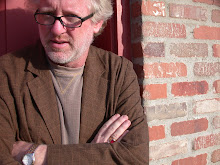I was at a party a few months ago at a friend’s house. Everyone there was a writer of some variety. I ended up in the kitchen trash-talking with a poet. I pointed out to her that so many great novelists—Faulkner, Plath, Hemingway—started out by publishing poetry. I suggested that once she got the hang of writing poetry, she might be ready to move up to fiction.
The poet leaned back against the kitchen counter and sized me up. "I refuse to write fiction," she said, "because I never want to write the sentence: 'He walked into the kitchen and turned on the light.'”
It was a great line, and I had no comeback for it. Even now, the memory of that moment makes my head hurt.
But the truth is, I apparently love to write about people walking into kitchens. I just searched my folder of short stories and novels for the phrase “into the kitchen” and found 102 documents that contain that phrase. One hundred and two. That’s a lot of kitchens being walked into.
I dug around in the files, and here are a few recent samples:
—I floated bonelessly into the kitchen.
—Kirby went into the kitchen and rummaged around in the cupboard for two glasses that matched.
—She switches off the porch light, puts her keys on the entry table and goes into the kitchen—all without looking at him.
—He stumbled frowzily into the bathroom for a luxurious sit-down pee, and then walked squinting into the kitchen rubbing his oily buzz-cut.
—A little after three, Frankie bounded up the back steps and burst into the kitchen, glazed in sweat.
—And then the next morning, Sunday, Alvie had come out of his bedroom and followed a strange autumnal scent into the kitchen, where he found a head of lettuce sweltering in the oven.
—I went into the kitchen, like I always did when I got home, and washed my hands again in scalding water.
Now it’s true that poets get to write opulent sentences like, "And this is why I sojourn here/Alone and palely loitering" or "We have lingered in the chambers of the sea/By sea-girls wreathed with seaweed red and brown"—and that must be a great deal of fun.
But those lines don’t get people from one room to another, and that is the stuff of stories. In fiction, good sentences DO things; they don’t just lounge around looking pretty. Our sentences aren’t Fabergé eggs; they’re coat hangers and wing nuts and shoelaces and tight-fitting lids on jars of baby food.
A lot of young writers worry that they don't have a style, a kind of fingerprint or DNA that marks their voice or diction as their own. A lot of students tell me they want to find their voice—as if it might show up in the pocket of their winter coat or in that junk drawer next to the refrigerator. But it’s just as important to write all those straight, clear sentences that have no need for poetry—the sentences where people pick up forks, or push the buttons on their car radios, or stir about in their purses for their house keys. Those are the sentences that get the work of storytelling done.
Okay, that’s it. I’ll just post this blog and head into the kitchen for a glass of water and some Tylenol.
Subscribe to:
Post Comments (Atom)


No comments:
Post a Comment